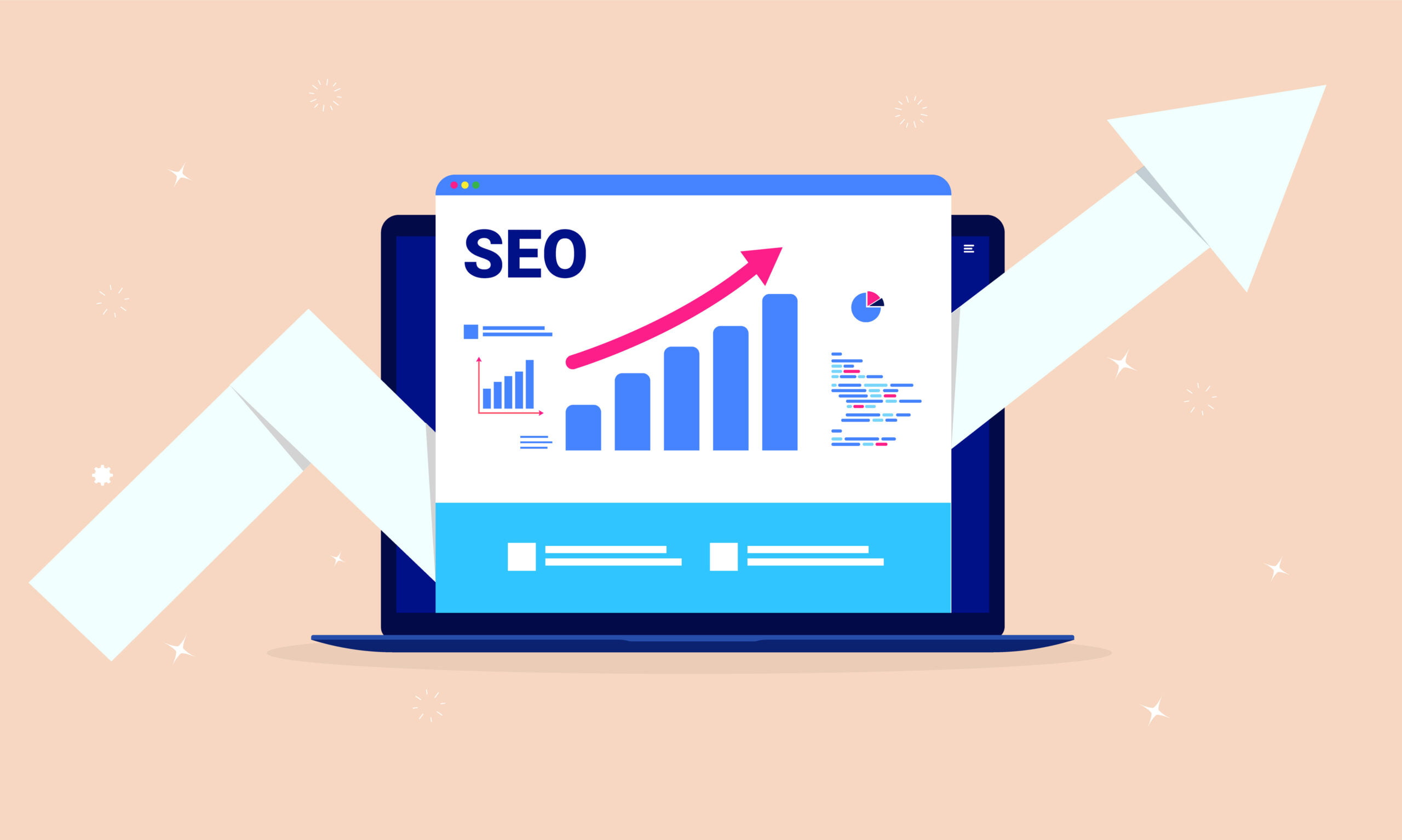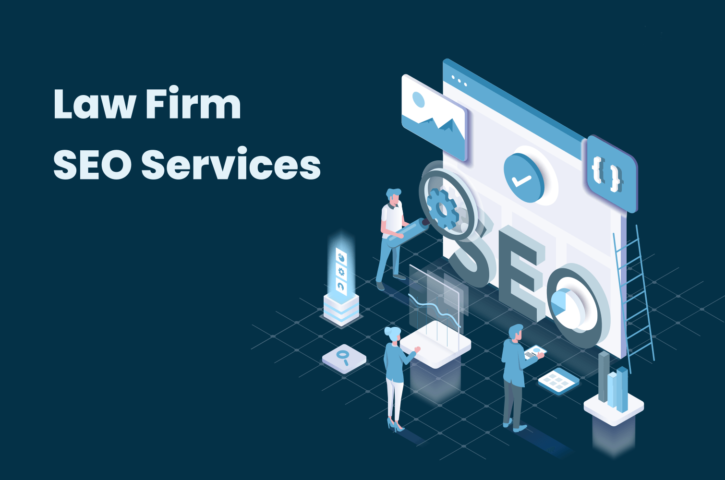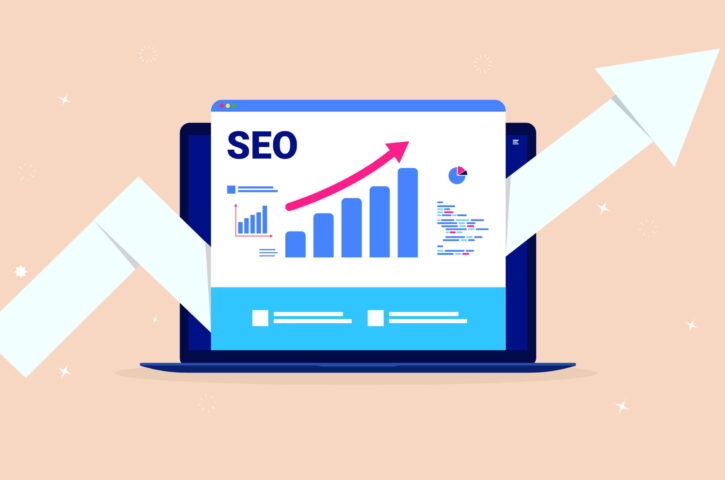
One of the most effective ways to achieve this is through search engine optimization (SEO). By optimizing your e-commerce website for search engines, you can increase its visibility, attract more organic traffic, and ultimately dominate the e-commerce market. In this expert’s guide, we will explore the key strategies and best practices for e-commerce SEO domination.
Table of Contents
- Ecommerce SEO
- On-Page Optimization: Enhancing Your Product Pages
- Technical SEO: Optimizing Website Performance
- Building High-Quality Backlinks for Ecommerce Websites
- User Experience (UX) and Conversion Rate Optimization (CRO)
- Mobile Optimization: Capturing the Mobile Shopper
- Local SEO for Ecommerce: Targeting Local Customers
- Social Media Integration: Amplifying Your Ecommerce Business
- Ecommerce SEO Analytics: Tracking and Measuring Success
- Voice Search Optimization: Preparing for the Future
- International SEO: Expanding Your Ecommerce Business Globally
- Security and Trust Signals: Building Customer Confidence
- Conclusion
- FAQs
- 1. How long does it take to see results from ecommerce SEO efforts?
- 2. Can I do ecommerce SEO on my own, or should I hire a professional?
- 3. Is it necessary to optimize every product page on my ecommerce site?
- 4. How important is link building for ecommerce SEO?
- 5. How often should I update my ecommerce site’s content?
Ecommerce SEO
An E-commerce SEO agency is the practice of optimizing an online store’s website and product pages to rank higher in search engine results. By optimizing various aspects of your e-commerce website, you can increase its visibility, attract more organic traffic, and ultimately boost your online sales. E-commerce SEO involves a combination of keyword research, on-page optimization, technical SEO, link building, user experience optimization, and more.
On-Page Optimization: Enhancing Your Product Pages
On-page optimization involves optimizing individual product pages to make them more search engine-friendly and user-friendly. This includes optimizing meta tags, headings, product descriptions, and URLs. Incorporate target keywords naturally within your content while ensuring a seamless user experience.
H2 Heading: Meta Tags
Meta tags, such as the meta title and meta description, play a crucial role in attracting users from search engine results pages. Craft compelling meta tags that accurately represent your product, include relevant keywords and entice users to click through to your website.
H2 Heading: Product Descriptions
Write unique and engaging product descriptions that highlight the features, benefits, and unique selling points of your products. Incorporate keywords naturally and provide useful information to both search engines and potential customers.
H2 Heading: URL Structure
Optimize your URL structure by including relevant keywords and keeping it concise and descriptive. Avoid using long, cryptic URLs that are difficult for both users and search engines to understand.
Technical SEO: Optimizing Website Performance
Technical SEO involves optimizing various technical aspects of your e-commerce website to enhance its visibility and performance in search engine results. Here are some key areas to focus on:
H2 Heading: Site Speed
A fast-loading website is crucial for providing a seamless user experience and improving your search engine rankings. Optimize your website’s speed by compressing images, minifying CSS and JavaScript files, and leveraging browser caching. Regularly monitor your site’s speed using tools like Google PageSpeed Insights or GTmetrix and make necessary optimizations.
H2 Heading: Mobile-Friendliness
With the increasing use of mobile devices for online shopping, having a mobile-friendly website is no longer optional. Ensure that your e-commerce site is responsive and optimized for different screen sizes. Implement mobile-friendly design elements, such as easy navigation, clear calls to action, and fast-loading pages, to provide a positive user experience.
H2 Heading: Site Structure and Navigation
A well-structured website with intuitive navigation is essential for both users and search engines. Create a logical hierarchy for your product categories and subcategories. Implement breadcrumb navigation to help users navigate through your site and allow search engines to understand the relationship between different pages.
H2 Heading: XML Sitemap
Generate and submit an XML sitemap to search engines to ensure that all your important pages are crawled and indexed. A sitemap helps search engines discover and understand the structure of your website, improving its visibility in search results.
Building High-Quality Backlinks for Ecommerce Websites
Backlinks, or links from other websites to yours, play a significant role in SEO. Focus on acquiring high-quality backlinks from reputable and relevant websites. Reach out to industry influencers, collaborate with bloggers, and engage in content marketing to attract backlinks naturally. Additionally, leverage social media platforms to share your content and encourage others to link back to your ecommerce site.

User Experience (UX) and Conversion Rate Optimization (CRO)
Providing a seamless and enjoyable user experience is crucial for ecommerce success. Optimize your website’s design, layout, and functionality to create a user-friendly interface. Ensure that your site is easy to navigate, has clear calls to action, and provides a secure and convenient checkout process. Regularly analyze user behavior, conduct A/B testing, and make data-driven improvements to maximize your conversion rates.
Mobile Optimization: Capturing the Mobile Shopper
Mobile optimization is essential for ecommerce success, as an increasing number of customers prefer shopping on their mobile devices. Optimize your website for mobile by implementing a responsive design, optimizing page speed, and simplifying the checkout process. Ensure that your product images and descriptions are displayed properly on smaller screens, and provide a seamless mobile browsing and shopping experience.
Local SEO for Ecommerce: Targeting Local Customers
If your ecommerce business has a physical presence or serves specific geographic areas, local SEO is crucial. Optimize your website for local search queries by including location-specific keywords in your content, meta tags, and URLs. Create and optimize your Google My Business listing, encourage online reviews, and participate in local directories and listings to increase your visibility in local search results.
Social Media Integration: Amplifying Your Ecommerce Business
Leverage the power of social media to amplify your ecommerce business. Create profiles on relevant social media platforms and actively engage with your audience. Share your product listings, blog articles, promotions, and customer testimonials on social media to attract more followers, drive traffic to your website, and increase brand awareness. Encourage social sharing and user-generated content to expand your reach and generate buzz around your ecommerce brand.
Ecommerce SEO Analytics: Tracking and Measuring Success
To effectively dominate ecommerce SEO, it’s essential to track and measure the success of your strategies. Utilize analytics tools like Google Analytics to monitor key metrics such as organic traffic, conversion rates, bounce rates, and average session duration. Analyze the data to gain insights into user behavior, identify areas for improvement, and make data-driven decisions to optimize your ecommerce SEO efforts.
Voice Search Optimization: Preparing for the Future
With the rise of voice assistants and smart speakers, optimizing your ecommerce site for voice search is becoming increasingly important. Optimize your content for conversational queries by incorporating long-tail keywords and natural language phrases. Focus on providing direct and concise answers to frequently asked questions. Structured data markup can also enhance your chances of appearing in voice search results.
International SEO: Expanding Your Ecommerce Business Globally
If you have ambitions to expand your ecommerce business globally, international SEO is crucial. Conduct thorough market research to understand the preferences and search behaviors of your target audience in different countries. Implement hreflang tags, create country-specific subdirectories or subdomains, and localize your content, including product descriptions and currency options, to cater to different regions effectively.
Security and Trust Signals: Building Customer Confidence
Building trust with your customers is essential for ecommerce success. Implement security measures such as SSL certificates to encrypt customer data and provide a secure shopping experience. Display trust badges, customer reviews, and testimonials prominently to enhance credibility. Offering transparent return policies, secure payment options, and excellent customer support further instills confidence in your brand.
Conclusion
With the rapid growth of ecommerce, implementing effective SEO strategies is crucial for dominating the online market. By following the expert’s guide to ecommerce SEO domination outlined above, you can optimize your website, attract organic traffic, increase conversions, and establish a strong online presence. Stay up to date with the latest SEO trends and continually refine your strategies to stay ahead of the competition.
FAQs
1. How long does it take to see results from ecommerce SEO efforts?
The timeline for seeing results from ecommerce SEO can vary depending on various factors such as the competitiveness of your industry, the quality of your SEO efforts, and the existing state of your website. Generally, it takes several months to start seeing noticeable improvements in search engine rankings and organic traffic.
2. Can I do ecommerce SEO on my own, or should I hire a professional?
While it is possible to perform ecommerce SEO on your own, it can be complex and time-consuming. Hiring a professional SEO agency or expert can provide you with the expertise and resources needed to develop and execute a comprehensive SEO strategy.
3. Is it necessary to optimize every product page on my ecommerce site?
Ideally, you should aim to optimize every product page on your ecommerce site for maximum visibility and search engine rankings. However, if you have a large number of products, it may not be practical to individually optimize each page.
4. How important is link building for ecommerce SEO?
Link building plays a crucial role in ecommerce SEO. High-quality backlinks from reputable and relevant websites can improve your website’s authority and rankings. Focus on acquiring natural and organic backlinks through content marketing, outreach to influencers, and collaborations with industry partners.
5. How often should I update my ecommerce site’s content?
Regularly updating your ecommerce site’s content can benefit your SEO efforts. It shows search engines that your website is active and provides fresh information to users. Update product descriptions, add new blog posts, and refresh existing content to keep your site relevant.











